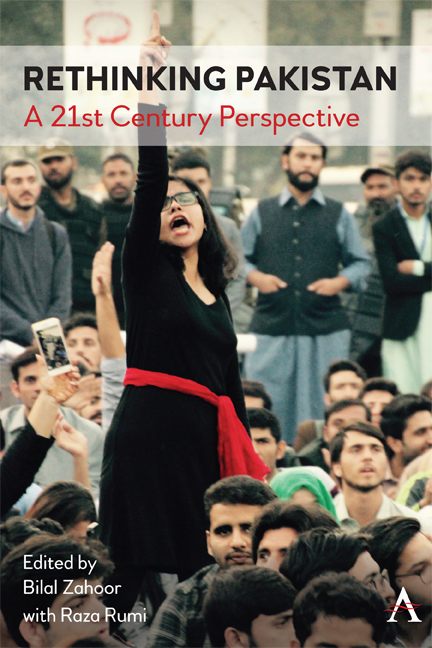Book contents
- Frontmatter
- Dedicated
- Contents
- Acknowledgements
- Introduction
- Part I Identity, Religion and Radicalisation
- Part II Development, Reform and Governance
- Part III Rights, Repression and Resistance
- Part IV Sex, Gender and Emancipation
- Part V Conflict, Diplomacy and Foreign Policy
- Contributors
- Bibliography
- Index
Chapter 11 - Is There a Silver Bullet to Pakistan’s Energy Crises?
Published online by Cambridge University Press: 20 January 2022
- Frontmatter
- Dedicated
- Contents
- Acknowledgements
- Introduction
- Part I Identity, Religion and Radicalisation
- Part II Development, Reform and Governance
- Part III Rights, Repression and Resistance
- Part IV Sex, Gender and Emancipation
- Part V Conflict, Diplomacy and Foreign Policy
- Contributors
- Bibliography
- Index
Summary
For many years now, the energy sector of Pakistan has been unable to meet the energy demands of the country. This is primarily due to limited generation capacity, but other factors such as the choice of fuel mix, inadequate transmission capacity and fragile and loss-prone distribution infrastructure have also contributed to the difficulties of this sector. Successive governments have attempted to solve these problems, but it seems like the energy sector, in particular the power sector, is in a downward spiral with no resolution in sight. Circular debt keeps on piling and the government is forced to bail it out periodically, in one way or the other. In this chapter, we will try to understand Pakistan's power sector and explore the possibilities of ameliorating its problems and challenges. Our discussion will not be limited to the traditional methods and technologies; it will rather take into account the use of new, disruptive technologies for meeting the longer-term energy demands of the country. Far from being a wish list of an armchair expert, the discussion presented below is a result of correspondence with more than 200 power sector professionals, researchers and industry leaders over the past five years. The problems identified, and the solutions suggested herein, are backed up by evidence-based research carried out by a team of professional researchers and doctoral students at the LUMS (Lahore University of Management Sciences) Energy Institute.
Understanding the Power Sector
Before turning to the solutions, we must understand three important concepts that are vital for solving the problems of the power sector.
First, the power sector comprises three separate functions namely generation, transmission and distribution. Generation is simply the production of electricity either from renewable resources (hydro, solar, wind, biomass, waste-to-energy and so on) or from non-renewable resources (oil, coal and natural gas); nuclear power is a form of energy that cannot be readily placed in renewable or non-renewable categories due to its geopolitical importance. Transmission comprises a bulk power delivery system of extra high voltage transmission lines and substations, while distribution consists of low voltage network for supplying electricity to the consumers.
- Type
- Chapter
- Information
- Rethinking PakistanA 21st Century Perspective, pp. 115 - 124Publisher: Anthem PressPrint publication year: 2020



